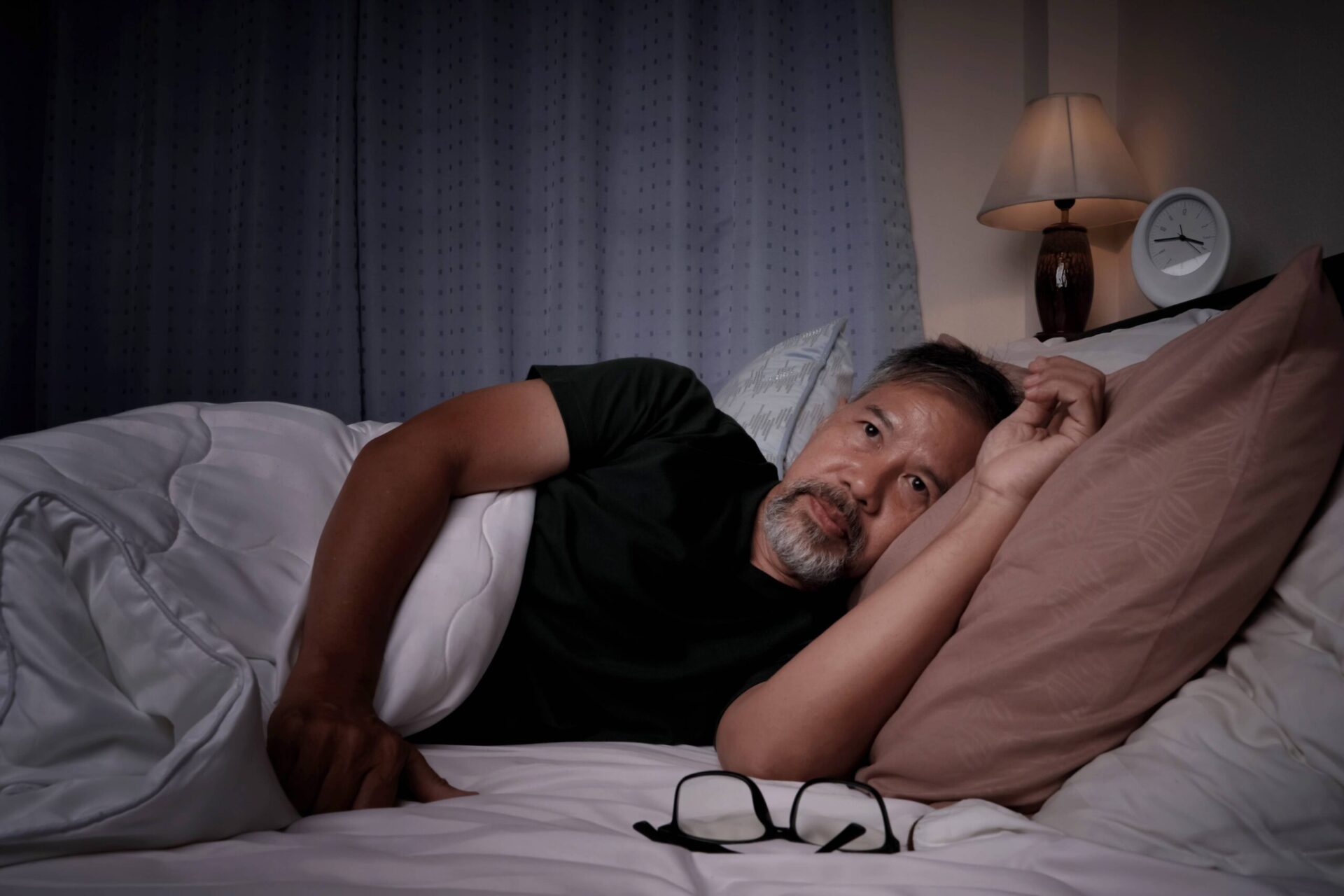Insomnia is a sleep disorder that affects millions of people worldwide, with 1 in 3 people estimated to have at least mild symptoms.
However, while many people do experience nights of unrest and poor sleep, it can sometimes be hard for a person to identify whether they suffer from insomnia. The condition can take many forms and isn’t just as simple as having difficulty falling asleep at night-time.
Looking for answers and advice? Read on as we explore what insomnia is, including insomnia symptoms, causes and treatments.
What is insomnia?
Insomnia sufferers will go through significant bouts of sleep disturbance that can impact nearly every aspect of their daily life. They could experience a range of symptoms during the night and daytime. Perhaps they just feel dissatisfied with their sleep and constantly tired.
Sometimes, insomnia can be brought on by a specific incident and be resolved reasonably quickly. However, other circumstances can be much more chronic and last for much longer. But rest assured, there is a variety of treatment options available if you choose to seek out a medical professional.
Insomnia symptoms
Insomnia symptoms include:
- Struggling to fall asleep despite being tired
- Waking up frequently during the night
- Trouble getting back to sleep once awakened
- Having an unrefreshing sleep overall
People who experience these difficulties opt to turn to over the counter pills as a remedy. However, this is only a quick fix that may lead to other concerns such as addiction and overreliance.
Daytime symptoms can be very damaging, having an impact on your work life, family life and general mental wellbeing. Those suffering may experience symptoms such as:
- Drowsiness
- Mood swings
- General fatigue
To overcome these issues, some choose to drink excessive amounts of coffee or other caffeinated beverages during the day. However, that can actually make things worse in the long run by making it harder to fall asleep at night.
As a result, a vicious cycle can be created, resulting in unrefreshing sleep, further irritability and difficulty focusing on tasks. Put simply, it’s best to avoid excessive caffeine consumption.
Insomnia causes
Insomnia causes can range from person to person, often coming down to individual factors such a psychiatric and medical conditions.
Stress
A common cause of insomnia is stress. This can stem from concerns about anything from work and school to health, finances and family life – worries that can keep the mind active at night. Stress can also be brought on by a significant life event or trauma, such as the loss of a loved one, which can result in trouble sleeping.
Medical conditions
Those who suffer from medical conditions and mental health disorders may also find themselves struggling with insomnia. Cancer, diabetes and anxiety disorders have all been linked to insomnia. In addition, less severe conditions such as overactive thyroid and restless leg syndrome have also been found to impact on sleep.
Prescription drugs
Unfortunately, many prescription drugs have side effects that interfere with sleep too. These include certain antidepressants and medications for asthma or blood pressure, as well as products contacting caffeine.
In some cases, the impact on sleep as a side effect can be temporary while your body adjusts to the new medication. However, if this negative impact continues, always talk to your doctor to see if there are any alternatives available.
Environmental issues
Your environment and lifestyle can also have an impact on your sleep. Anything from an irregular bedtime schedule and engaging in stimulating activities before bed to an uncomfortable sleeping environment can leave your mind struggling to rest, leading to trouble sleeping.
It’s also important to be aware of how long you’re spending time in front of a screen as this can be a significant factor. Limit the length of time you spend watching TV, playing video games or staring at a phone and try to avoid doing so just before you head to bed.
Insomnia treatment
The good news is that many cases of insomnia can be treated with quick changes that you can make on your own. This means you won’t have to rely on taking medication – something many people prefer not to take regularly.
Lifestyle changes
Sometimes, simple alterations to your lifestyle can work as an immediate insomnia treatment. This can include things such as a stringent bedtime routine, avoiding bright light while winding down and limiting distractions from mobile devices, TV and pets.
Health review
It is also a good idea to review your health. Consider whether any medical issues could be contributing to your problems. Being able to pinpoint exactly why you’re struggling to get to sleep will be extremely helpful in finding a quick cure.
Therapy
If after making lifestyle changes and you continue to battle with insomnia, you may want to consider therapy as insomnia treatment.
Emotion health problems such as anxiety and depression can be the cause of your sleep disorder. As such, therapy can be an effective way of treating the problem itself rather than just easing the symptoms, helping you develop healthier sleeping patterns for life.
One of the most popular and proven solutions for curing insomnia is cognitive behavioural therapy (CBT). This is a method of therapy that teaches a person to recognise and modify negative thoughts that can contribute to sleep problems.
CBT works by identifying the obstacles that are preventing you from getting a good night’s sleep and replacing them with more realistic thoughts. The therapist will help a person focus on improving their relaxation skills and changing lifestyle habits that impact a sleeping pattern.
Throughout therapy, it’s also a good idea to keep a sleep diary. This works as a good way of monitoring and tracking improvements and will help to find the root cause of the problem while discovering which techniques are working most effectively.
These improvements often take time and commitment so it is essential to find a therapist you will be comfortable sharing your personal thoughts and emotions. You can also support your therapist by making positive lifestyle choices such as adding more exercise into your day, eating well and reducing any levels of anxiety.
Starting therapy
If you’re struggling with insomnia, Pinnacle Therapy is here for you. Our specialist therapists can help you to identify environmental and behavioural factors that could be impacting your sleep, and work with you to overcome them.
To find out more information on sleep therapy in London and Isle of Man, contact us via 0207 060 4375 for a non-obligatory chat, or visit our contact page.














